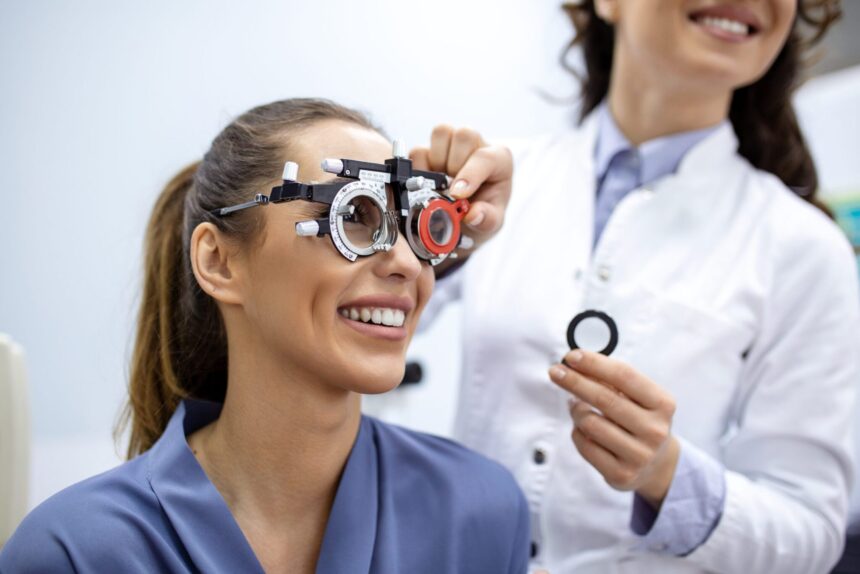An optometrist is a healthcare professional trained to manage your primary vision care. They provide services that range from sight testing and correction to diagnosing and identifying various eye conditions. Optometrists should be the first point of contact for individuals experiencing changes or challenges in their vision. Here are some tips for preparing for your first visit to an optometrist:
Document Your Symptoms
Before your appointment, document anything unusual you have noticed about your eyes or vision. Are distant objects looking blurry, or do letters seem out of focus when you read up close? Perhaps you’ve noticed yourself squinting more at screens or having difficulty adjusting to light changes. Recording when these issues occur also provides your optometrist with helpful insights.
If you experience associated symptoms, such as headaches, double vision, or floaters, write these down. Describe how often they occur and if anything seems to trigger them. Think about how your lifestyle connects to your symptoms; frequent computer use may lead to eye strain or dry eyes. This specificity allows the optometrist to better understand your daily routine and environment.
It can also be useful to prepare a summary of your own health and your family’s ocular history. Mention any ongoing health conditions, such as diabetes, high blood pressure, or autoimmune diseases, as these can influence eye health. If you wear glasses or contact lenses, bring them along and let the optometrist know when your most recent prescription was issued. Family history is also relevant, as some eye diseases are genetic.
Compile Questions
Making a list of questions allows you to get the guidance you need. Some common questions include those about:
- Testing procedures: You might wonder why a particular eye drop is necessary or be curious about what each piece of equipment does.
- Recent symptoms: Sudden vision changes, such as blurry vision or flashes of light, should be discussed with the doctor.
- Eye health: You might want to talk about ways to reduce digital eye strain, especially if you work in front of a screen for long stretches.
- Options for vision correction: Some patients wonder how contact lenses differ from glasses, or whether specialized eyewear for sports or driving is worthwhile.
- Warning signs: For individuals with children, it may help to ask about warning signs of vision problems as kids grow.
Understand Appointment Procedures
Familiarity with the steps of an eye exam often makes first-time visits less daunting. The appointment usually begins with a team member asking about your medical history and reviewing the symptoms or concerns you’ve brought with you. They may check your current glasses or contact lens prescription at this stage. After this, you will undergo a few preliminary tests to measure general aspects of your vision and eye health.
A common test involves reading a series of letters or symbols on a chart posted across the room. You might also have your peripheral vision checked or your eyes scanned to evaluate how they move and focus. Eye pressure measurements, taken using a small puff of air or a gentle instrument, help screen for issues like glaucoma. The optometrist will then perform a thorough exam, which may include bright lights, special lenses, or dilating eye drops to examine the inside of your eyes.
Visit an Optometrist Today
Your first visit to an optometrist is an active step toward caring for your eyes and maintaining awareness of your general health. Organizing your symptom notes, writing your questions, and knowing what to expect contribute to a more productive experience. Regular eye exams support clear vision, and they provide an opportunity to detect other health conditions in time. If you have noticed any changes in your vision or have not had an eye exam before, schedule an eye doctor appointment today.





